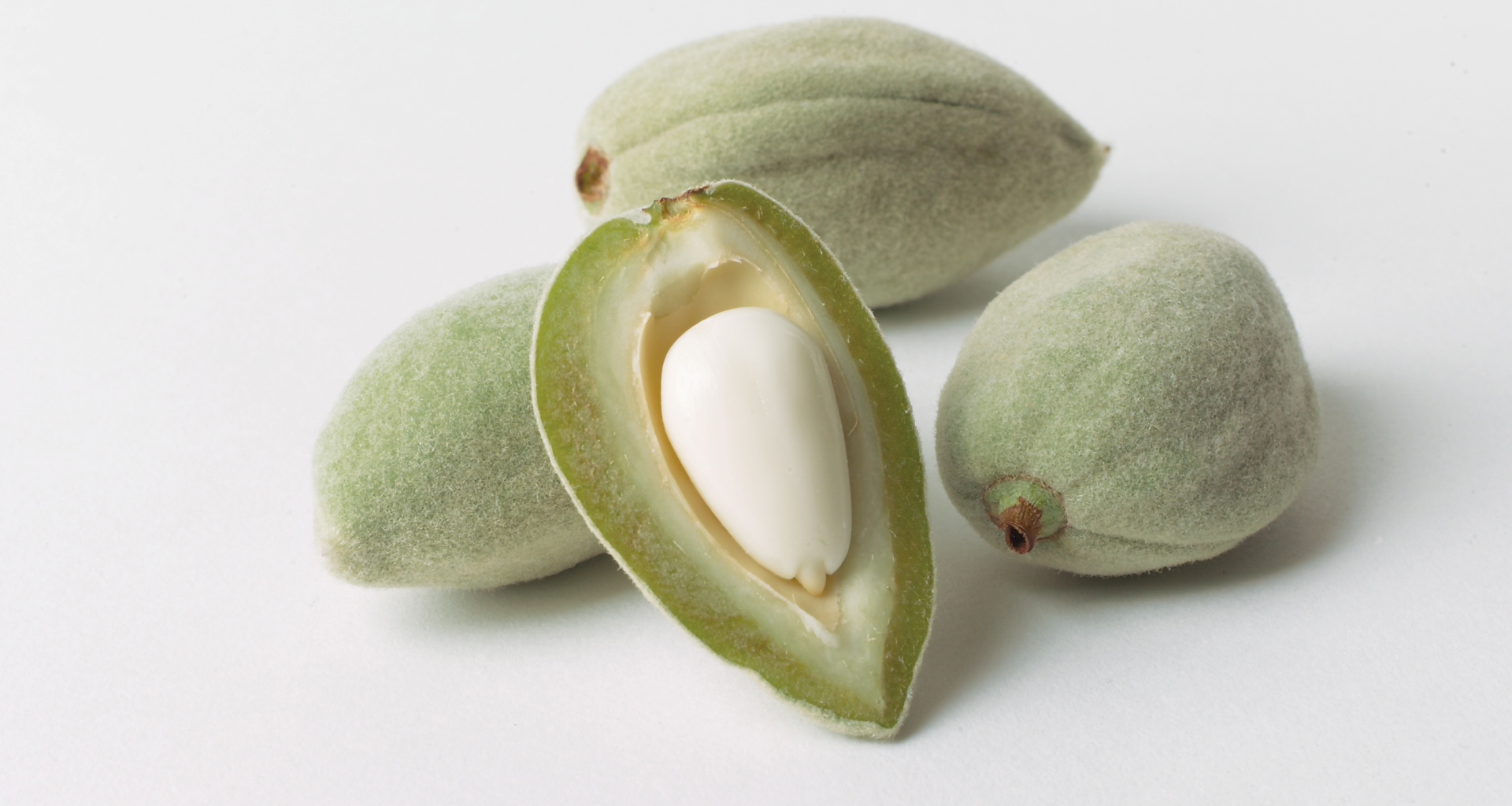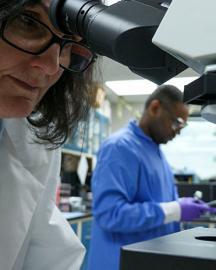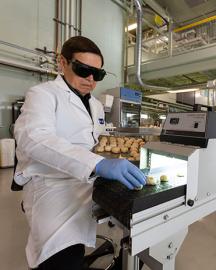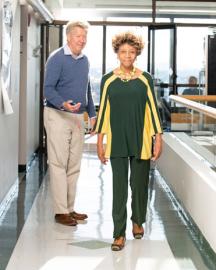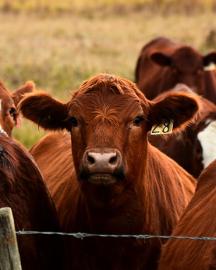Keeping Almonds Safe and Dry
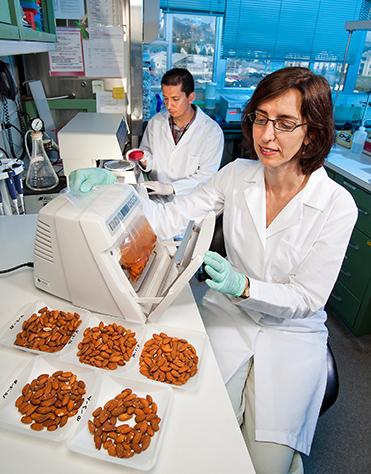
ARS scientists at the Western Regional Research Center in Albany, CA, have developed an effective, energy-saving technology to help keep microbes and mycotoxins off almonds. As a snack, in trail mix or baked goods, or made into almond milk and almond flour, the humble almond’s popularity continues to grow. To help meet the demand, California produces 80 percent of the world’s almonds, with a value of more than $5.33 billion. But when rain falls during harvest season, the wet almonds are more susceptible to contamination with microbes, like Salmonella, which can result in the complete loss of an almond crop. Rains also contribute to the growth of molds that can produce toxic compounds called mycotoxins.
To help keep almonds safe to eat and to save growers’ crops, ARS scientists used sequential infrared heat and hot air to simultaneously dry and decontaminate wet whole almonds. The results of their research were provided to industry and contributed to the ARS team receiving the 2018 Research and Development Award from the Institute of Food Technologists.
* Hero image courtesy of Almond Board of California


